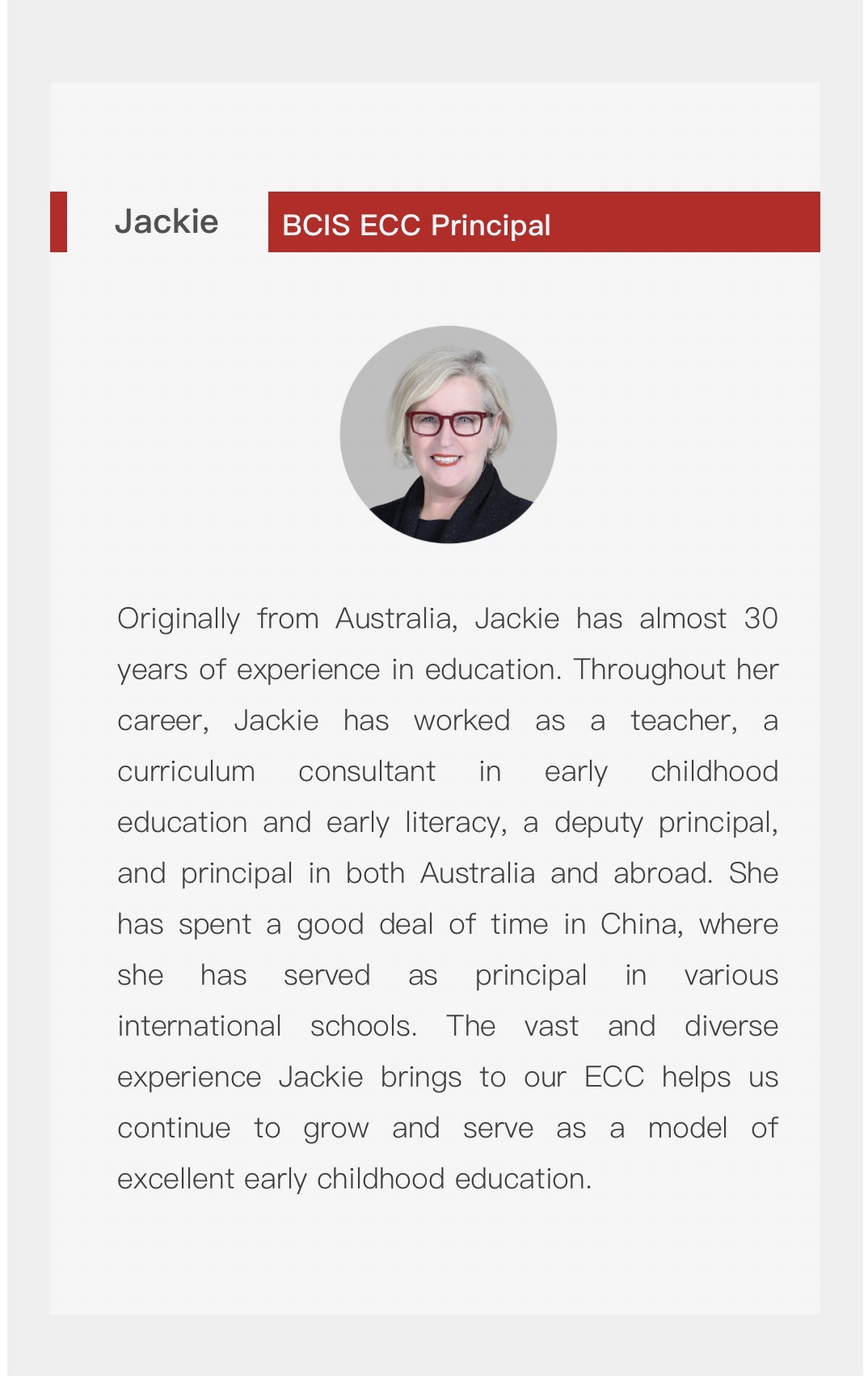News
Aug 17 2025
Personalization Learning at ECC

What is a personalized curriculum, and how can teachers ensure that all children make meaningful progress on their lifelong learning journey?

At BCIS ECC, we measure progress not by what children know, but by how they approach their learning. Memorizing facts and being taught content alone does not prepare our children for the future. In a world increasingly shaped by artificial intelligence — where facts are always at our fingertips via phones or other devices — rote memorization belongs to an education of the past.
At BCIS ECC, we draw inspiration from the renowned educator John Dewey, who said:

If education is truly about life itself, then simply memorizing facts or being taught how to think will not help children navigate the uncertainties of our world — or the unknown future ahead.
A personalized education at BCIS is therefore focused on how children learn to approach their learning. Using the International Baccalaureate Primary Years Program as a guiding framework, we pay attention to how children engage with their learning from the very first day in every grade level.


At BCIS ECC, we help children access facts and knowledge by strengthening the way they learn. We focus carefully on developing:
Thinking skills
Research skills
Communication skills
Self-management skills
Social skills

By supporting children to develop these essential skills, they progress in a way that empowers them to access knowledge independently, form their own ideas, and think critically about what they encounter.


For example, our two-year-old toddlers enjoy reading their favorite story, The Three Little Pigs. We ask them to consider: Are the pigs real? How do they know? These simple questions spark early critical thinking and help children analyze what they are reading.


In our mathematics program, Kindergarten children explore all the different ways to make the number 15. Some talk about addition (5 + 10), others about subtraction (20 - 5), while some create expressions like (4 × 5) - 5. But teachers don’t stop at the answers — they encourage children to explain how they arrived at their solutions. This sharing of thinking exposes children to diverse methods and develops mathematical and computational thinking skills. Such approaches enable children to apply their thinking flexibly across different contexts — something memorization alone cannot achieve. This process also nurtures their communication skills as they explain their reasoning to teachers and peers. Together, children and teachers learn and research their thinking skills, making learning an exciting journey.


The end of the Kindergarten year is a special moment at BCIS ECC — a time to pause, reflect, and celebrate how much children have contributed to our community and how they have grown. Instead of graduating, our children and teachers collaboratively prepare a learning exhibition for families. This event allows children to articulate how they approach learning and showcase projects that represent their growth.
Each year, families are amazed by the sophistication of the children’s language in describing their learning, their intentional application of thinking, research, communication, social, and self-management skills, and their ability to explain how these skills have been applied across different experiences.






At ECC, we start with deep respect for each child, blending a global outlook with progressive educational philosophies to accompany them through the small yet meaningful moments of growth. We do not rush children to memorize “right answers”; instead, we encourage them to ask their own questions.


What truly matters to us is not how much knowledge children accumulate, but the kind of person they are becoming. We firmly believe that what will guide children through an uncertain future is not short-term academic achievement, but agency, the curiosity to think critically, the courage to take action, and the resilience and skills to meet challenges head-on.





